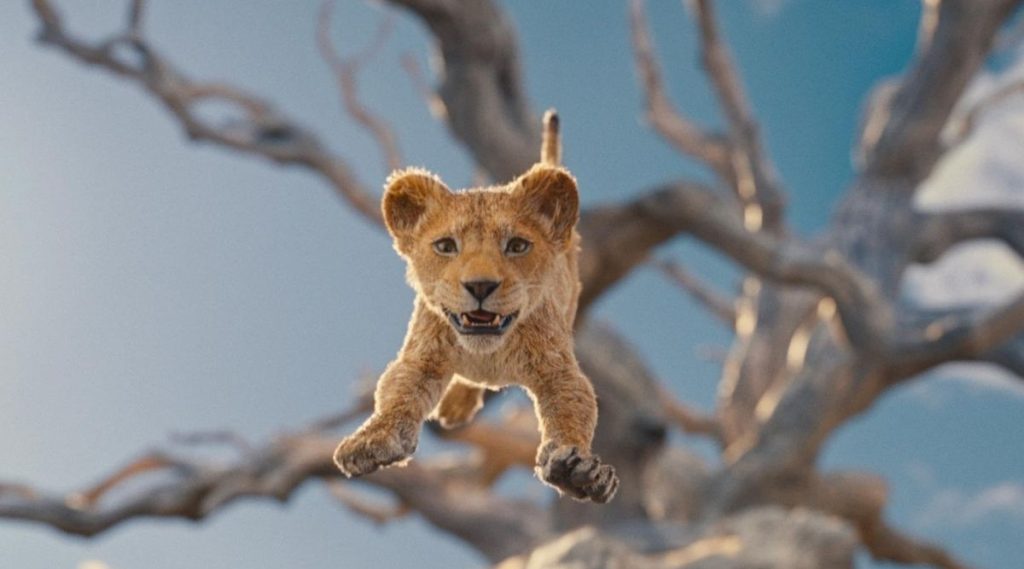Directed by Barry Jenkins and written by Jeff Nathanson, Mufasa: The Lion King (2024) is a prequel to the 2019 “live-action” The Lion King, which is based on the beloved 1994 animated classic of the same name. The Disney film stars Aaron Pierre as Mufasa, the lion orphan who would be king. After he’s separated from his parents in a flood, Mufasa is taken in by the prince of another pride, Taka (Kelvin Harrison Jr.), and his mother, Eshe (Thandiwe Newton). But, as a pack of lion outcasts led by the cruel Kiros (Mads Mikkelsen) threaten the rest of lion-kind, the meaning of family and bloodlines is tested.
Mufasa: The Lion King is a strong story trapped in franchise hell. The tale is epic, emotionally resonant, and a clever inversion of the original story. But the movie shoehorns in countless needless easter eggs, jokes, and mediocre musical moments. Most of what makes the story so strong is instantly zapped away every time.
The movie is ultimately about brotherhood. What makes brothers: blood or something greater? When Mufasa hones in on that theme, it’s great. Mufasa’s characterization is excellent, for the most part. He’s humble, wise, and kind. Taka is well-conceived, too. He loves his adopted brother, but his borderline abusive father, Obasi (Lennie James), instills in him a paranoia and shame that Taka struggles to overcome throughout the whole movie. Obasi also enforces some strange gender politics early on about the role of each gender in the pride.
The movie never fully shakes it because instead of Mufasa showing that he’s a well-rounded leader because of his masculine and feminine upbringing, he’s instead made into a super-lion with uncannily heightened senses. It’s unclear what the movie gains by giving him these extraordinary powers, but it definitely loses itself in this needless gender binary it enforces. Just because lions have different gender roles in real life doesn’t mean that jokes about it are funny.
Too much story makes Mufasa: The Lion King drag along.
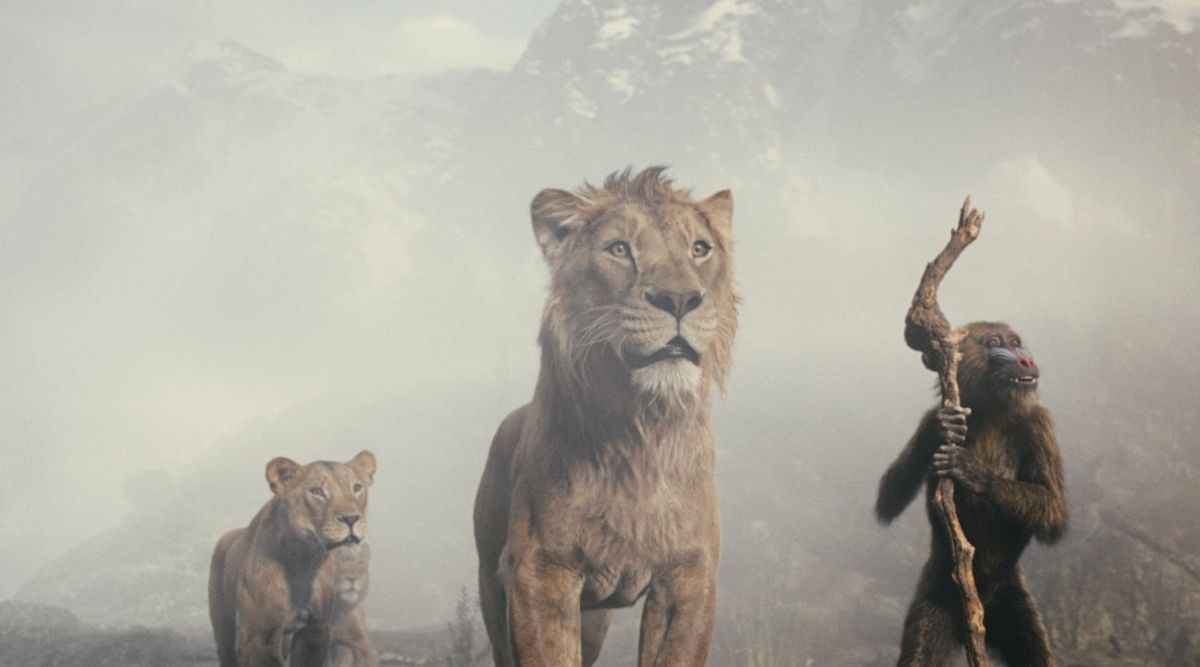
Mufasa and Taka undertake a journey to escape the Outcasts and find Me Lele, a fabled green land beyond the horizon that Mufasa’s mother promised to meet him when they were separated. And along the way, their family grows. They’re joined by Sarabi (Tiffany Boone), Mufasa’s future wife, Rafiki (Kagiso Lediga and John Kani), the wise but odd mandril, and Zazu (Preston Nyman), Sarabi’s royal escort. They each have their own ways of demonstrating to Mufasa what the real definition of family can be, all of which are rather effective, even if Sarabi is barely a fully realized character outside of her introduction and her position as a love interest.
If Mufasa stopped there, it would have been enough. It’s already rather filled with characters who come and go and three separate beginnings to the journey that takes an hour to get through. But Mufasa has more—it’s also a frame story. The movie opens with Kiara (Blue Ivy Carter), the daughter of Simba (Donald Glover) and Nala (Beyoncé). She is waiting impatiently in the care of Timon (Billy Eichner), Pumbaa (Seth Rogen), and Rafiki for her parents to return from their mating ground. To pass the time and inspire the lion cub, Rafiki tells Kiara the story of her grandfather.
Again, if Mufasa had stopped here, it would have been enough. The extra frame story element works well as a mirror between the generations of lions discovering what it means to have a family. However, since Kiara is the daughter of the Lion King, and much of Mufasa is about how you don’t need to be part of a royal bloodline to be worthy of the throne, the message does seem a bit muddled. But Mufasa seems to care very little about what lessons anybody is learning at any given point in the movie because every sincere moment is immediately cut off by some sophomoric antic by Timon and Pumbaa.
The movie feels like it was shot to be several episodes of television. After every single chapter in the story, an emotional moment transpires, and immediately, the film cuts back to the frame story, and Timon and Pumbaa make some meta-joke for the adults to laugh at, supposedly. Sure, some of them are funny. It feels very Lion King 1 1/2 the way they’re making constant references to the real world without completely overdoing it. But in the context of this very sincere movie, it feels wildly out of place.
Comedy and music undercut the movie’s strengths
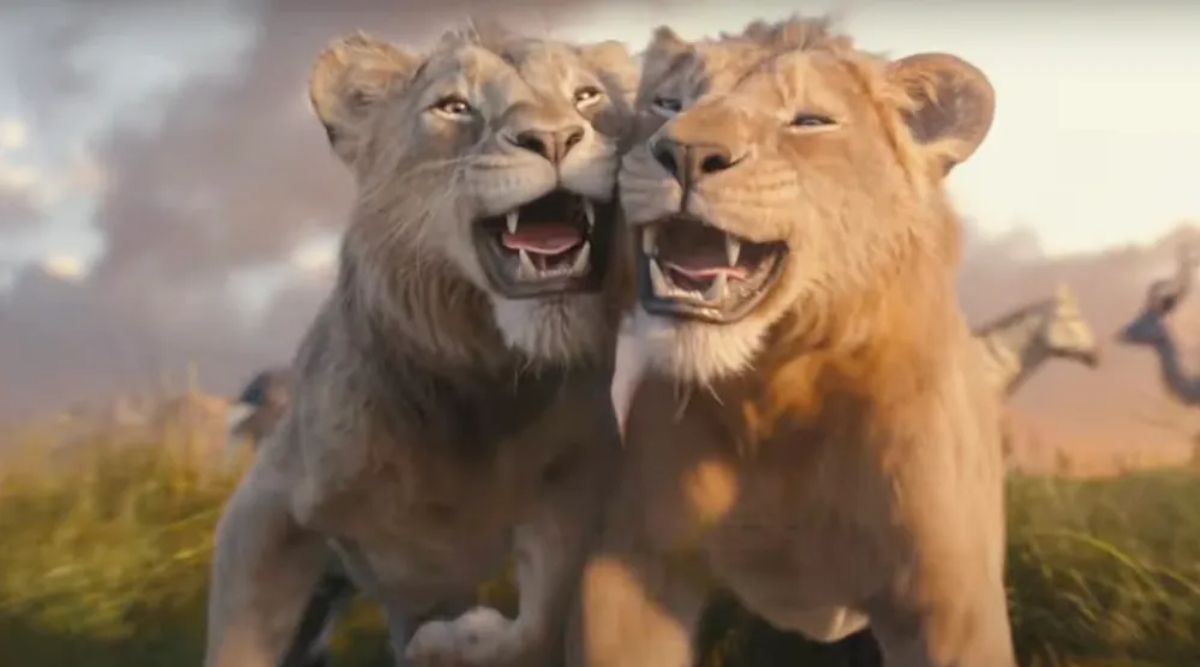
The movie is very serious. There is a lot of violence and death in addition to serious emotional themes. It’s not that the movie isn’t kid-friendly; these are all appropriate topics for kids to encounter and no more intense than the original movie by any means, but it’s clear that somebody in a corporate office couldn’t stand that the movie didn’t have enough supposed laugh lines and demanded Timon and Pumbaa be added in every 15 minutes to overcompensate. They have no place in this movie whatsoever. Zazu has enough laugh lines for the whole movie. These interludes are deeply unnecessary and ruin the flow of the action and emotion every single time.
The same must be said for the majority of the songs. If any of them will be stuck in their heads on the way out of the theater, it isn’t because they are good; it’s because they range from annoying to ridiculous. The style is fine, and Lin-Manuel Miranda wasn’t necessarily a bad choice for African-inspired music. But the lyrics are unremarkable at best and too literal at worst. Plus, the sound mixing was horrendous. The words were barely audible over the excessive orchestration. Hopefully, the mixing is an issue that can be fixed after the release, but there’s nothing that can be done about the fact that there is just too much noise happening in every song.
Mufasa also suffers from one of the cardinal sins of franchise movie-making. It reminds you of the superior original film too many times. Whether it’s with audio cues or parodies of the iconic original songs, or several eye roll-inducing “so this is how x wound up in y” moments, Mufasa will engender several facepalms and head shakes across its overly long nearly 2-hour runtime.
Mufasa: The Lion King doesn’t trust the audience.
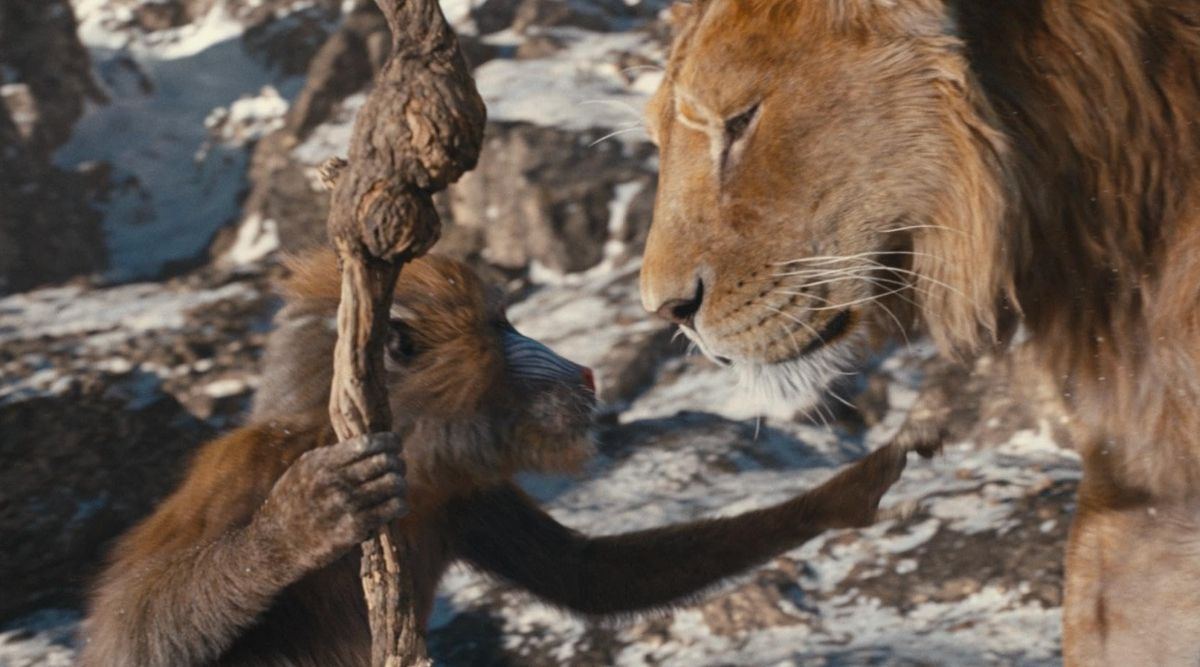
Overall, Mufasa seems to think its audience is dumb. It constantly flashes back to the same three shots from earlier in the movie, as if the audience must be regularly reminded about these key moments and their meanings. The rampant Easter eggs feel like taps on the shoulder, where subtlety in these moments could have been fun instead of constant lampshading.
The dialogue and song lyrics constantly tell the audience what is happening instead of just showing it. Kids are not dumb. They will catch the references they’re meant to, understand the themes they’re meant to understand, and ask older people to help them understand the ones they don’t, just like the movie expects of Kiara.
The dumbing down of its dialogue and constant in-jokes are also symptoms of Mufasa’s lack of confidence in itself. The movie looks far better than The Lion King (2019). That doesn’t mean it looks great—this is an inherently flawed medium. But the lighting is superior, the character models are stronger, and every lion—at least the male lions — has a distinct design that makes it easier to tell them apart than in the previous movie.
Modern franchise mindset hampers Mufasa.
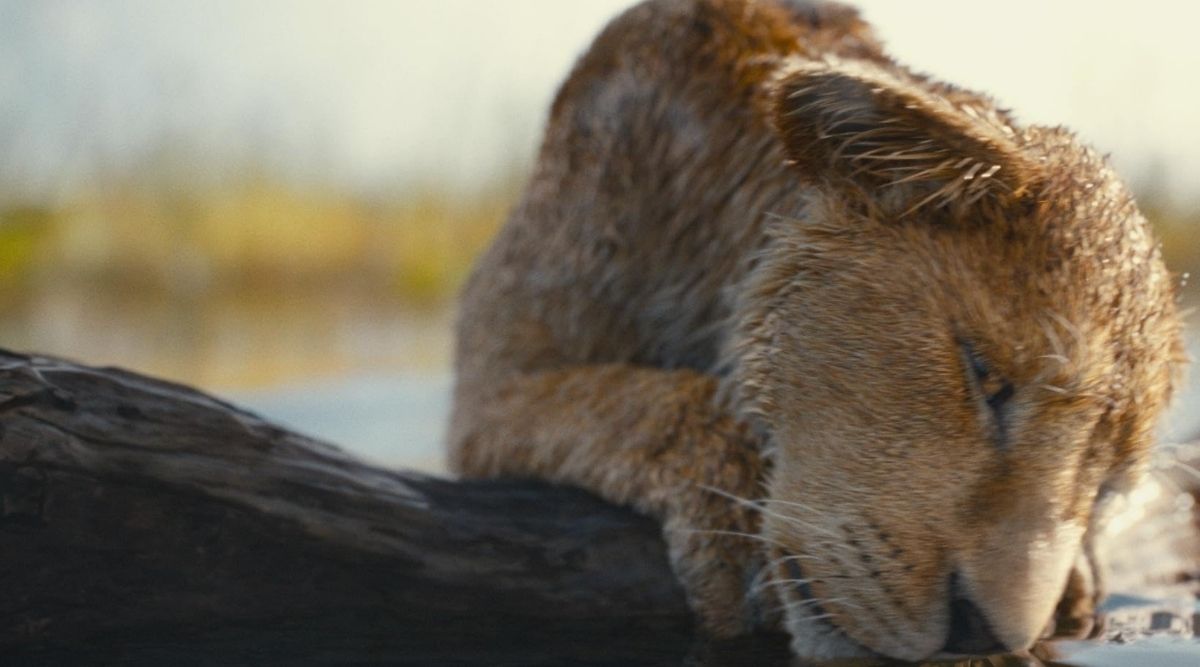
Yet, the movie spends so much time spinning the camera in circles and zooming out for top-down shots that it becomes dizzying. Either Mufasa is trying to hide the details in its characters, or it’s trying to cut corners and save money or time by reducing how many shots need high-quality models. It’s dizzying, and then there will be a series of intense face zoom-ins with ridiculously high-quality fur or a random first-person perspective that never reoccurs. It’s distracting to the point where it would be reasonable to have to look away for a bit to let your eyes settle.
Mufasa: The Lion King is such a shame because it clearly has a ton of heart and great potential, but it is largely ruined by the modern franchise mindset and an errant desire to achieve four-quadrant marketing potential with its kidification and Blue Ivy stunt casting.
This exact same movie could remove the meta jokes with Timon and Pumbaa, most if not all of the songs, and all of the lampshading of its Easter eggs and be a pretty solid movie. Stop spinning the camera in circles, and don’t write the dialogue assuming that kids need to have morals spoonfed to them word for word to grasp difficult concepts, and the movie could be pretty good, even.
But alas, Mufasa: The Lion King is part of a long chain of movies ruined by the errant belief that IP is king. It betrays its own moral: Bloodlines and lineages are not what make things great.
Mufasa: The Lion King is streaming now on Disney+.
Mufasa: The Lion King
-
Rating - 5/105/10
TL;DR
Mufasa: The Lion King is part of a long chain of movies ruined by the errant belief that IP is king. It betrays its own moral: Bloodlines and lineages are not what make things great.

